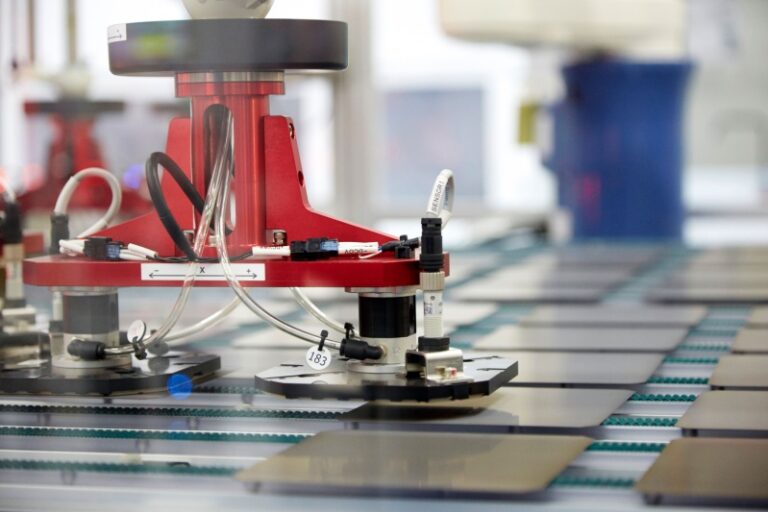Qcells has initiated an intellectual property (IP) dispute over alleged unauthorized use of its patented laser-enhanced contact opening (LECO) technology in tunnel oxide passivated contact (TOPCon) solar cells. The case underlines growing tensions in the PV industry over TOPCon patents.
South Korea-based PV manufacturer Qcells has initiated an IP dispute with “several” unnamed “global manufacturers” over its LECO technology. Qcells adopted the technology in 2022. This is mainly used in the production of TOPCon, to improve the sustainability and efficiency of solar cells.
Earlier this week, Qcells sent a number of manufacturers an infringement notice, accusing them of using the company’s intellectual property without permission.
“Qcells has asked global solar energy manufacturers to cease the production, use, offer for sale, sale and marketing of, or import of the products using LECO technology, which violates Qcells’ patents,” the company said in a statement.
LECO was developed in Germany by equipment supplier Cell Engineering, which was later acquired by Qcells. The two companies have been working together on technology since 2018. Qcells reports that it has integrated LECO technology into all its production lines since the first quarter of 2022.
LECO is a laser technology that improves the electrical contact of PV cells. Although it was initially developed for application in aluminum back surface (BSF) solar cells, it was subsequently applied to a passivated emitter back cell (PERC) and then to TOPCon. It is in the latter technology that its greatest effectiveness has become apparent: LECO is able to increase power and reduce degradation in TOPCon cells.
Speak with pv magazine in 2024, manufacturing analyst Alex Barrows, head of PV at Exawatt, said the technology “solved the issue of contact with the emitter at the top of TOPCon” while reducing the amount of aluminum needed in the paste. Thinner metallization lines could then be printed on the front of the cell, increasing efficiency while making the cell less sensitive to moisture due to the reduction or elimination of aluminum.
Relatively easy to implement in PV production lines, laser-assisted metallization was widely adopted in TOPCon production lines in early 2024, according to Taiwanese analyst Amy Fang of InfoLink. Whether that process is LECO, as Qcells claims, or something else will now be a matter for the courts.
“The recipient companies currently produce and sell products using LECO technology, for which Qcells currently holds the patents,” Qcells said this week. Qcells had initially “affirmed its ownership” of the intellectual property in a public statement in October 2023.
Market effects
Qcells’ LECO action is the latest in a series of IP disputes over TOPCon. In China, a series of claims and counterclaims have been filed by major manufacturers, the latest of which is the action taken by JinkoSolar against Longi this month.
In the United States, Jinko has taken similar action against Japanese manufacturer VSUN. Thin-film manufacturer First Solar declared its claim on TOPCon in July 2024, despite abandoning its efforts to deploy the technology more than a decade ago. In its Q3 2024 earnings call, First Solar announced that it is investigating whether JinkoSolar, Canadian Solar, JA Solar, Longi and Trina Solar have infringed on their TOPCon IP.
To further muddy the waters, researchers at UNSW published an article in the journal Solar Energy Materials and Solar Cells in July 2024 reporting that a laser process developed by Jolywood had similar positive effects to LECO in TOPCon cells. The process is called Jolywood Special Injected Metallization (JSIM).
IP claims in solar energy production have rarely had major consequences for the market in the past. The rapid pace of technological change in the PV industry tends to outpace the legal process. However, the number of TOPCon disputes is starting to increase, raising questions about whether this dynamic will change.
This content is copyrighted and may not be reused. If you would like to collaborate with us and reuse some of our content, please contact: editors@pv-magazine.com.


